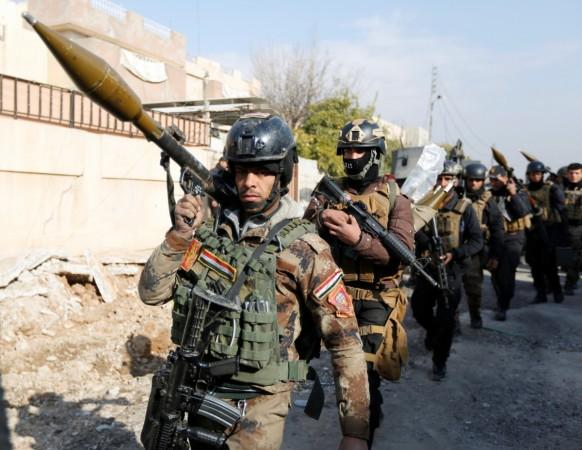
The mass disappearance of youngsters from Kerala to join Islamic State of Iraq and Syria (ISIS) raises fears that India is seeing increased activity from recruiters of the terror group. But what is making Kerala youth fall for ISIS? Investigations so far reveal that many educated Muslim youth from Kerala, who have worked in Gulf countries, were in close contact with the so-called "prophets of terror".
According to the National Investigation Agency (NIA), the activities are being funded by NRI businessmen from Kerala.
"The image of secular Kerala is a vanity. The state has been a breeding ground of terror networks. Many organisations and religious outfits are now facilitating their activities. And many youngsters have also detached from their [orthodox Sunni] leaders and started following online Islam," an official told India Today.
In January, the NIA also filed a chargesheet against two suspected ISIS operatives from Kerala. The chargesheet named Abdul Rashid Abdulla as the main accused, who motivated a number of youths to exit India, along with their families, to join ISIS, and Yasmeen Mohammed Zahid who was intercepted while trying to take a flight to Kabul to join ISIS in Afghanistan.
According to NIA, Abdulla was the main conspirator who motivated a number of youth in Kerala to leave India to join the ISIS. He held classes at Kasaragod and other places in support of the terrorist organisation and "its ideology of violent jihad", the agency said.
The NIA probe reveals that the operation has run since July 2015. Abdulla also raised funds for ISIS, and the men recruited were all educated professionals.
Another key figure is Doha-based Manseed Bin Mohamed who moved to West Asia from Panoor in Kerala in 2012. According to the Indian Express, once a member of the Popular Front of India, alleged by the Kerala government to be linked to violent Islamist groups, Mohamed once researched the activities of Hindutva groups for the organisation.
"In Doha, though, his political views lurched towards direct action," the NIA says: the Islamic State's caliph was his new beacon.
NIA officials say that in encrypted telegram conversations, Mohamed recruited several like-minded men, all from the educated middle-class: Swalih Muhammad, a researcher with an automobile manufacturing major; Safwan Pookatil, a graphic designer working for the PFI daily Thejas; Ramshad Neelangan Kandiyil, a chartered account based in Kozhikode; his cousin, engineering drop-out Jaseem Neelangan Kandiyil; small-time businessman Rashid Ali," an Indian Express report said.
The Kerala government has now put under the scanner people and outfits who misuse social media for propagating extremist ideologies of the ISIS.

















